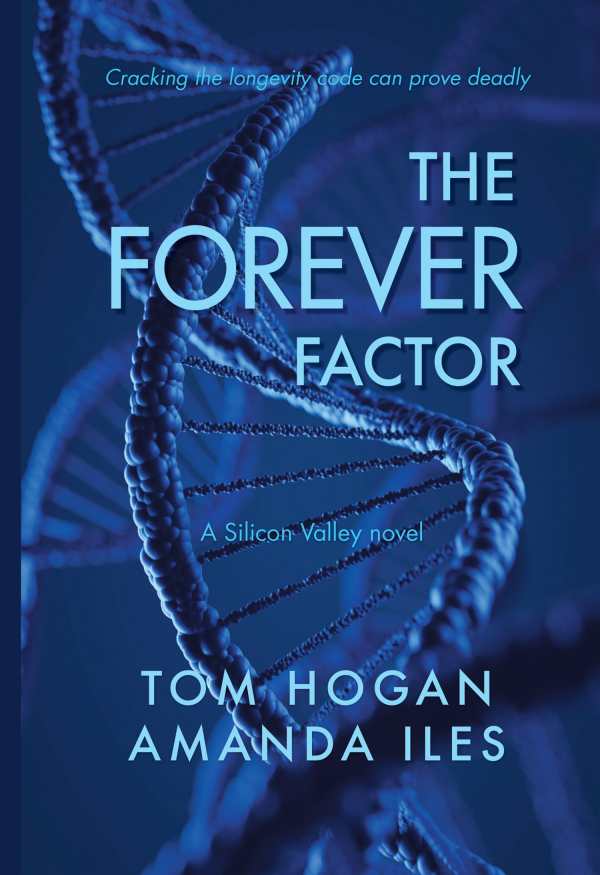The Forever Factor
A Silicon Valley Novel
Questions about how a longer human lifespan might shape society—and about who should command such technology—are at the center of the musing thriller The Forever Factor.
In Tom Hogan and Amanda Iles’s medical thriller The Forever Factor, a biologist fends off corporate espionage, moral quandaries, and self-doubt.
Petra is a molecular biologist at a biotechnology firm specializing in palliative care. She wants to help cure her mother’s degenerative syndrome. In the process, she discovers a way to slow and maybe reverse aging, expanding the human lifespan to more than 150 years.
The discovery propels Petra to a Silicon Valley startup position; there, she faces cutthroat practices and sabotage. A group of hackers, the Hydras, also threaten her. Further, her discovery raises moral questions about how lengthening lifespans might shape society—and about who should command that technology.
Driven forward by sudden, dramatic occurrences, including a death at a gala and escalating espionage, the novel is often gripping. Petra’s series of six failed experiments, her discovery of a mystery protein that affects aging, and her mother becoming a key member of the startup are also involving plot points. A few digressions interrupt the book’s momentum, though, including long gambling scenes and repetitive banter in the laboratory.
Petra’s characterization is shaped by the clashes between her work and her personal motivations. A scientist who’s forced into a management role, she is driven by her desire to help her mother and salve her pain over losing her sister to an incurable degenerative disease. She has a supportive relationship with her climbing partner and ex-lover, Zoe, though she also has difficulty with intimacy. Her opponents are colorful but less dimensional: Among the Hydras, some pursue knowledge; others crave the thrill of living forever. And Petra’s boss Cheryl is introduced as a potential foil, but her ultimate impact is minimal.
The prose is clear but journalistic, with descriptions of CRISPR for gene editing and a futuristic AI that simulates molecular models fleshing out the book’s science. The ethical complexities of such advancements are also covered at length. Some advancements are signified sans specifics, though: Petra’s AI system is said to shave “years off our research trajectory,” for example. Elsewhere, cinematic descriptions add to the book’s excitement, as with a note that the yacht of a member of the technology elite is a “spectacular and startling combination of glass, distressed steel, and concrete,” and tender moments inject humanity, as when Petra contends with her mother’s failing health. Indeed, the personal stakes of Petra’s work are the book’s constant background, proving to be ultimately more compelling than the threats of hackers and rival companies.
A scientist evolves into an ethical leader in The Forever Factor, an emotive thriller about the complications of prolonging human life.
Reviewed by
John M. Murray
Disclosure: This article is not an endorsement, but a review. The publisher of this book provided free copies of the book and paid a small fee to have their book reviewed by a professional reviewer. Foreword Reviews and Clarion Reviews make no guarantee that the publisher will receive a positive review. Foreword Magazine, Inc. is disclosing this in accordance with the Federal Trade Commission’s 16 CFR, Part 255.

